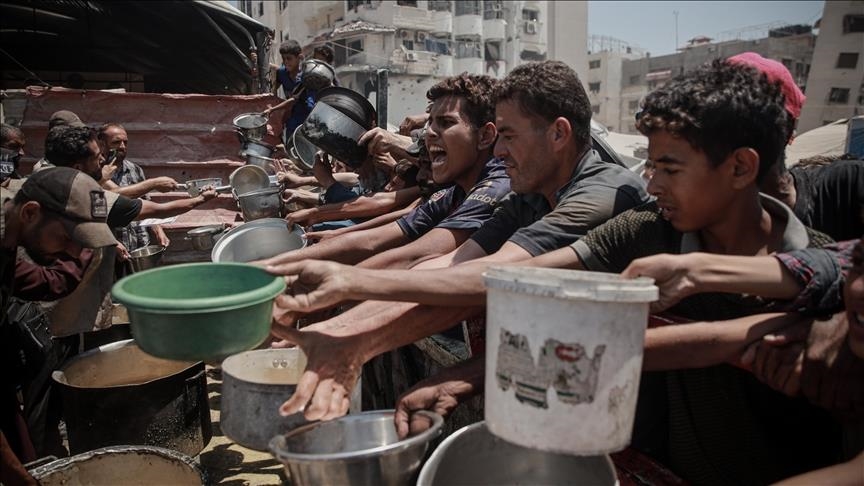World Food Program says IPC Gaza report shows need for action before 'hypothetical famine declaration'
'This is not a warning. This is a call to action. This is unlike anything we have seen in this century,' official says

GENEVA
The UN World Food Program (WFP) on Tuesday described the latest IPC report on Gaza as not a "warning" but an urgent "call for action," urging that all efforts should be put to prevent suffering before a "hypothetical famine declaration.
"This is not a warning. This is a call to action. This is unlike anything we have seen in this century," WFP emergency director Ross Smith told reporters in Geneva. "It's clear that we need urgent action now."
Earlier, the Integrated Food Security Phase Classification (IPC), a global hunger monitor, said "the worst-case scenario of famine" is currently unfolding in Gaza amid intensified conflict, displacement, and plummeted access to food.
"Mounting evidence shows that widespread starvation, malnutrition, and disease are driving a rise in hunger-related deaths," the IPC said in its latest alert. "Latest data indicates that famine thresholds have been reached for food consumption in most of the Gaza Strip and for acute malnutrition in Gaza City."
Another WFP official, Jean-Martin Bauer, clarified that this report "does not formally declare famine," but "what we are telling you now is that the indicators we're seeing in Gaza have exceeded the famine threshold for food consumption and for malnutrition, and what we're telling you, once again, is that action needs to take place now."
"We shouldn't wait for a hypothetical famine declaration to do everything we possibly can to prevent the suffering," he added.
According to the IPC, people’s access to food across Gaza is "now alarmingly erratic and extremely perilous," as since May 27, over 1,000 people have been killed while trying to access food.
Airdrops 'last resort, not practical'
Asked about the recent performance of airdrops by some countries in Gaza, Smith said: "It really is a last resort, where there are no other logistics or transport options."
He added that such distributions are "far too expensive and inefficient."
"In this context, it carries extreme risk for populations that are in a very dense population base in different parts of Gaza, and we've seen some of those reports of injuries already," he said. "While I appreciate the symbolic nature of it, it is not a practical solution. And we do have that practical solution waiting, ready at the borders of Gaza."
Smith was referring to the reports that at least 11 Palestinians were injured due to aid airdrops in northern Gaza, as one of the pallets fell directly on tents where displaced people are living.
Israel has imposed a blockade on Gaza for 18 years and, since March 2, has shut down all crossings, blocking the entry of aid convoys and ignoring international calls to reopen them.
According to Gaza’s Health Ministry, at least 147 people have died of starvation since October 2023, including 88 children.
Rejecting international calls for a ceasefire, the Israeli army has pursued a brutal offensive on Gaza since Oct. 7, 2023, killing over 60,000 Palestinians, most of them women and children.
Anadolu Agency website contains only a portion of the news stories offered to subscribers in the AA News Broadcasting System (HAS), and in summarized form. Please contact us for subscription options.







